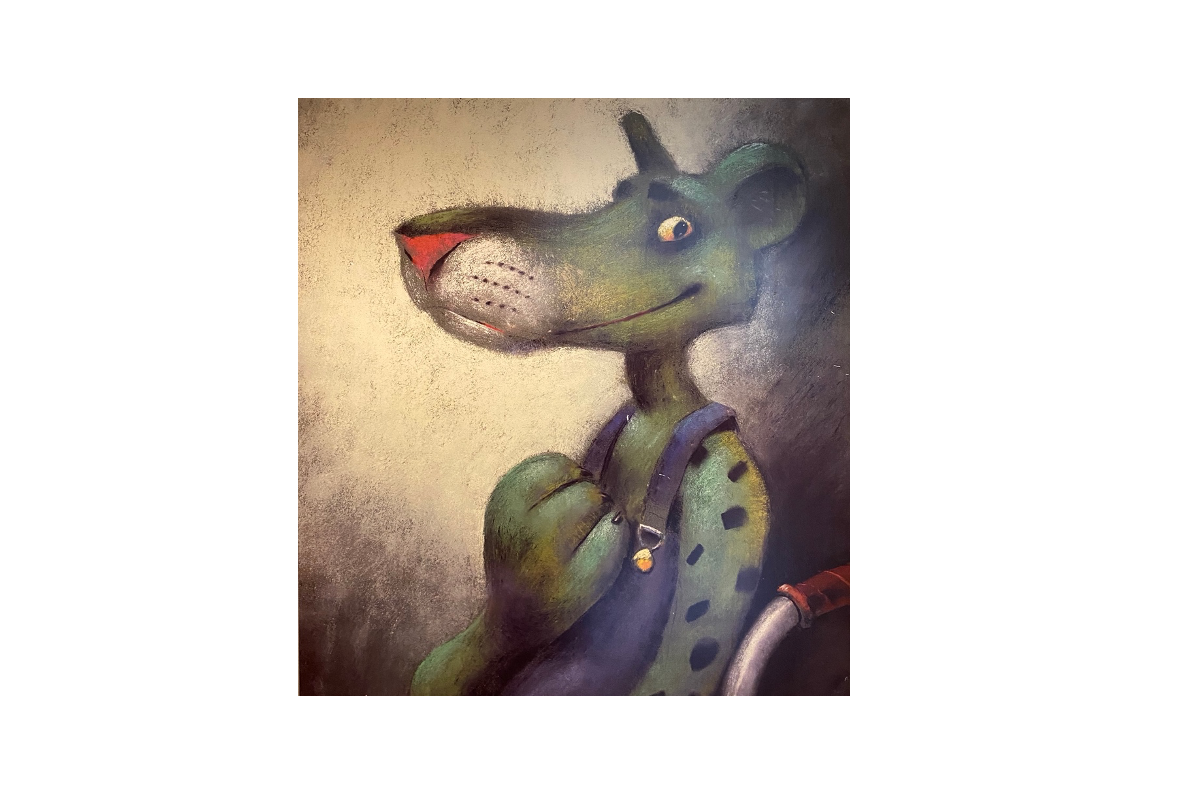I love this image. Maybe you don’t get it at first glance?
And that’s exactly the point.
Check out the dungarees – hard-wearing clothes for tough jobs. And then look to the bottom right corner. The guy is in a wheelchair. It doesn’t yell: “Hey, look, this person is disabled!” He’s just someone doing a job that needs done, and getting on with his life. No fanfares, no fuss.
Wouldn’t that be brilliant: a world where a disability isn’t something to be remarked on or stressed over or even particularly noticed. It’s just part of being that person, like having blue eyes or brown hair. It doesn’t define or limit anyone. And it definitely doesn’t stop them being able to progress as far as their skills and abilities can take them.
The picture is on the wall of the Vates Foundation offices in Käpylä, where I gave my first presentation of this visit to the dedicated team who are passionate about developing meaningful work opportunities for disabled people.
Vates-säätiö is the expert organisation in Finland for the equal employment of people with disabilities, long term illnesses and partial work capacity. It’s 30 years old this year and has a national reach, sharing information, developing projects, and training staff to recognise disabled workers as a resource they can’t afford to overlook.
Kaija Ray, who is vice president of the European Union of Supported Employment as well as a senior specialist within the Vates team, has a lot to say about ways to change thinking and assumptions around disabled people in the workplace. We’ve arranged to talk again later in my trip, as time overtook us while we were both still in full flow!
But I’d like to share something that particularly struck me from our discussion.
It’s about the language we use, and how it can reinforce the very barriers we want to break down. Changing how we speak is often the first step to changing how we think.
Two examples.
How many of us have applied for work, or even taken a job, knowing we don’t have the complete package but expecting we’ll learn as we go? If we only applied for jobs within our comfort zone we’d never progress. It’s assumed we will talk up our skills, and sell ourselves.
Young people who have grown up surrounded by negative language – what they can’t do, what’s difficult, what they need help with – can struggle to talk about their skills, or even realise they have them. If fighting for the right support has always been about their needs, and never their competence and determination, they won’t have the practice and may not even have the right words. It makes it harder for them to hustle. Kaija sees this as a real hindrance with far reaching effects, that prevents young people getting a toe in the door and holds them back if they do ever get in.
No young person should grow up feeling they are worthless. This is even more true for those we know are likely to meet extra challenges – they will need every ounce of resilience, confidence and determination we can give them. That’s something that is totally within our gift as individuals to change, in every single interaction.
The second is in the stock phrases Kaija often hears from employers, even those who are thinking progressively and looking to change: the speech of defence (“… at least we do X…”), the speech of inflexibility (“… unfortunately the criteria are Y …”), and many more. They may not be unreasonable in isolation, but collectively and over time they do a lot to reinforce a culture that says: “We’re already doing what we can, we can’t really do more“.
Really? We really can’t do more than we’re already doing?
Kaija feels challenging these patterns of thinking is an important step to changing attitudes. I think she’s right.

One more visual for you. Everyone knows you don’t get far these days without a brilliant logo that captures the heart and soul of a project. And this trip now has its very own! A huge thank you to Jana, finishing a 2-month internship at Vates, whose skills as a graphic designer are now being recognised. I’m grateful she accepted my commission, and I’m delighted with the logo she’s produced for me. I’ll be using it on everything to do with Finland from now on. In Jana’s words: “It feels good to do what you think you are good at finally, after being a bad student academically your whole life – you are like, OK, maybe I’m good at something after all.” Hope you agree!
All opinions are my own and do not necessarily represent those of any other organisation. I am however grateful to ARC Scotland and my colleagues for making this trip possible.


Leave a Reply